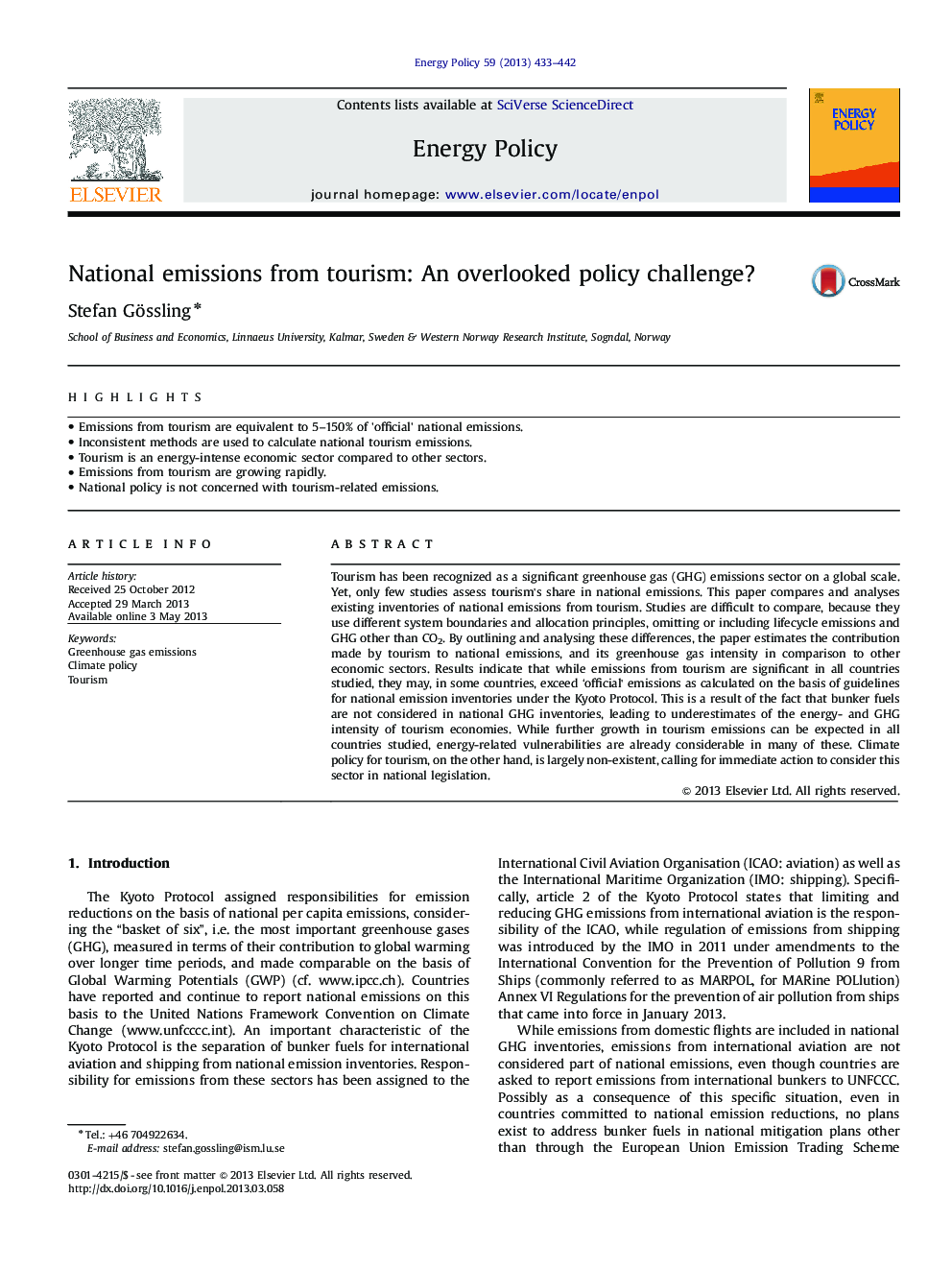| Article ID | Journal | Published Year | Pages | File Type |
|---|---|---|---|---|
| 7404488 | Energy Policy | 2013 | 10 Pages |
Abstract
Tourism has been recognized as a significant greenhouse gas (GHG) emissions sector on a global scale. Yet, only few studies assess tourism's share in national emissions. This paper compares and analyses existing inventories of national emissions from tourism. Studies are difficult to compare, because they use different system boundaries and allocation principles, omitting or including lifecycle emissions and GHG other than CO2. By outlining and analysing these differences, the paper estimates the contribution made by tourism to national emissions, and its greenhouse gas intensity in comparison to other economic sectors. Results indicate that while emissions from tourism are significant in all countries studied, they may, in some countries, exceed 'official' emissions as calculated on the basis of guidelines for national emission inventories under the Kyoto Protocol. This is a result of the fact that bunker fuels are not considered in national GHG inventories, leading to underestimates of the energy- and GHG intensity of tourism economies. While further growth in tourism emissions can be expected in all countries studied, energy-related vulnerabilities are already considerable in many of these. Climate policy for tourism, on the other hand, is largely non-existent, calling for immediate action to consider this sector in national legislation.
Related Topics
Physical Sciences and Engineering
Energy
Energy Engineering and Power Technology
Authors
Stefan Gössling,
